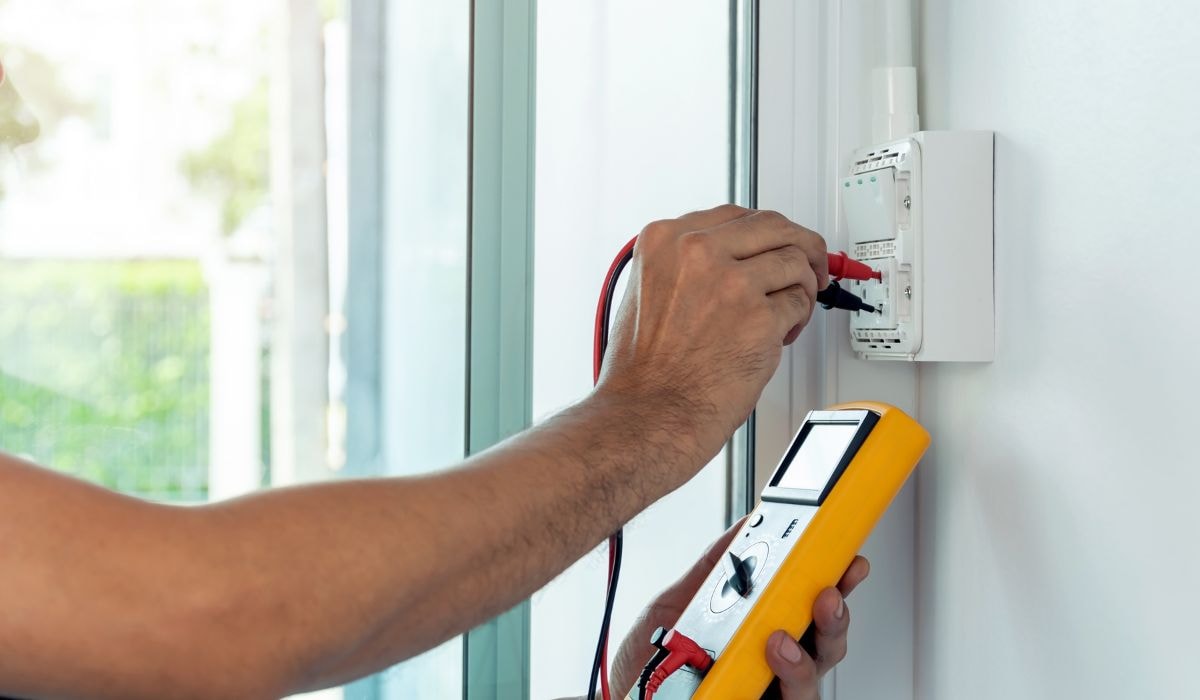
Being an electrician in Australia is a rewarding career that combines technical skills with problem-solving abilities. However, beyond the hands-on work, electricians also need to manage their finances effectively to ensure their business runs smoothly.
Accounting services, such as filing taxes, creating financial statements, and setting up a bookkeeping system, are critical for helping electricians track income, manage expenses, comply with tax obligations, and plan for the future. Here’s everything you need to know about accounting for electricians in Australia.
What is Accounting?
Accounting is the systematic process of recording, summarising, and reporting financial transactions of a business. For electricians, this includes tracking income from jobs, recording expenses for materials and tools, managing payroll, and ensuring compliance with tax regulations.
Good accounting practices provide a clear picture of the business’s financial health, supporting better decision-making and long-term planning. Additionally, business advisory services can support electricians in making informed business decisions and achieving financial goals.
Why Accounting Matters for Electrical Business
Proper accounting is crucial for several reasons:
- Financial Health: It helps you understand the financial state of your business, ensuring you can cover expenses and make a profit.
- Tax Compliance: Accurate accounting ensures you comply with the Australian Taxation Office (ATO) requirements, avoiding penalties.
- Budgeting: It allows for effective budgeting and financial planning.
- Cash Flow Management: Proper accounting helps in managing cash flow, ensuring you have enough liquidity to cover day-to-day operations.
- Decision Making: Reliable financial information supports better business decisions.
- Strategic Advice and Profit Improvement: Tax accountants provide strategic advice and practical business solutions, such as financial modeling and profit improvement strategies. Their technical tax knowledge helps in managing tax payments, compliance, and cash flow, offering personalized guidance to improve profitability.
Key Accounting Tasks for Electricians
Vehicle Expenses
Recording vehicle expenses accurately is crucial for electricians. It is important to distinguish between business and private trips to ensure proper tax deductions and compliance. Keeping detailed records of mileage, fuel costs, and maintenance can help in claiming the correct expenses.
Business Structure
Choosing the right business structure is essential for electricians starting their own business. The appropriate business structure can impact tax obligations, legal responsibilities, and financial management. It is important to consider individual needs, family situation, and future plans when selecting a business structure to ensure asset protection and sustainable growth. Properly setting up the business structure can also facilitate better management of finances, including tax and GST registrations, insurances, and accounting software.
Invoicing and Payments
Invoicing: Prompt and accurate invoicing is crucial. Ensure your invoices include all necessary details such as your Australian Business Number (ABN), contact details, a description of services provided, and the payment terms.
Payments: Keep track of all incoming payments and follow up on overdue invoices to maintain a healthy cash flow. Accurate invoicing and payment tracking support informed business decisions by providing clear insights into cash flow, helping to tailor business strategies and improve profitability.
Expense Tracking
- Recording Expenses: Maintain a record of all business-related expenses. This includes materials, tools, vehicle expenses, insurance, and other overhead costs.
- Categorising Expenses: Categorise expenses to understand where your money is going and to simplify tax reporting. Categorizing expenses is an important business tool for identifying areas for cost-saving and making informed business decisions.
Technical Tax Knowledge and Obligations
- Goods and Services Tax (GST): If your annual turnover is $75,000 or more, you must register for GST. You’ll need to charge GST on your services and lodge Business Activity Statements (BAS).
- Income Tax: Keep detailed records of your income and expenses to accurately report your income tax. Consider using tax-deductible expenses to lower your taxable income. Managing tax payments is crucial to avoid penalties and ensure compliance.
- Superannuation: If you have employees, you’re required to pay superannuation contributions. Ensure you meet the Superannuation Guarantee (SG) obligations.
Payroll
- Employees: If you employ staff, you need to manage payroll, including withholding tax, superannuation, and other entitlements.
- Contractors: If you work with subcontractors, ensure you understand the difference between contractors and employees to comply with tax and superannuation laws.
Managing payroll effectively is crucial at different stages of the business life cycle, from start-up to sale, as it ensures compliance with small business regulations and aids in cash flow management.
Record Keeping
- Documentation: Keep all financial records for at least five years, as required by the ATO. This includes receipts, invoices, bank statements, and tax returns.
- Digital Records: Consider using accounting software to digitise records, making it easier to track and manage your finances. Accounting software serves as the most important business tool for maintaining accurate financial records, enabling informed business decisions and identifying areas for improvement.
Tools and Software
Using accounting software can streamline many of these tasks. Some popular options for electricians in Australia include:
- Xero: Known for its user-friendly interface and robust features, Xero offers invoicing, expense tracking, and payroll management.
- MYOB: A comprehensive solution that covers accounting, payroll, and BAS reporting.
- QuickBooks: Offers features tailored to small businesses, including invoicing, expense tracking, and GST management.
By using the right accounting software, electricians can position themselves as business and profit builders by streamlining financial management, which helps grow the business and maximize profits.
Hiring an Accountant
While many electricians manage their own accounting, hiring a professional accountant can be beneficial, especially as your business grows. An accountant can:
- Ensure Compliance: Keep you up-to-date with the latest tax laws and ensure compliance.
- Provide Advice: Offer valuable financial advice and help with financial planning. Additionally, hiring an accountant who offers business coaching services can provide strategic advice and practical business solutions tailored to your niche, giving you a serious competitive edge.
- Save Time: Allow you to focus on your core business by handling complex accounting tasks.
Tips for Effective Accounting for Electricians

- Stay Organised: Regularly update your financial records to avoid last-minute stress.
- Separate Personal and Business Finances: Use separate bank accounts for business transactions to simplify accounting.
- Plan for Taxes: Set aside money regularly to cover your tax obligations.
- Review Regularly: Regularly review your financial statements to understand your business’s performance and make informed decisions.
- Consider Business Coaching: Business coaching can help you develop a strong business strategy and gain a competitive edge by providing practical business solutions tailored to your industry niche.
Frequently Asked Questions
Do I need to register for GST?
You need to register for GST if your annual turnover is $75,000 or more. Once registered, you must charge GST on your services and lodge Business Activity Statements (BAS). Choosing the right business structure can impact your GST registration and compliance, as different structures may have varying requirements and benefits.
Can I deduct my tools and equipment as business expenses?
Yes, tools and equipment used for your business are tax-deductible expenses. Keep detailed records of these purchases for accurate tax reporting. The type of electrician you are, whether domestic or commercial, can influence the types of deductible expenses due to varying working conditions, physical demands, and the need for specific tools and equipment.
How do I manage my cash flow effectively?
Regularly monitor your income and expenses, follow up on unpaid invoices promptly, and maintain a cash reserve for unexpected expenses. Using accounting software can help in tracking cash flow efficiently. Effective cash flow management strategies can position electricians as profit builders by providing strategic advice and practical business solutions to enhance profits.
What records do I need to keep for tax purposes?
Keep all financial records, including receipts, invoices, bank statements, and tax returns, for at least five years. Digital records are acceptable if they are clear and easily accessible. Maintaining detailed records goes beyond the role of just tax accountants; it supports overall business growth by providing insights and strategies for improvement.
Should I use accounting software or hire an accountant?
This depends on your business size and complexity. Small businesses may manage with accounting software, while larger businesses or those with complex finances might benefit from hiring a professional accountant. Accounting software can also help distinguish between business and private trips for accurate expense tracking.
Conclusion
Accounting is a vital aspect of running a successful electrical business in Australia. By staying organised, understanding your tax obligations, and using the right tools, you can ensure your business remains financially healthy and compliant. Whether you manage your accounting or hire a professional, prioritising your financial management will set you up for long-term success.
Utilizing comprehensive accounting services, such as filing taxes, creating financial statements, and setting up a bookkeeping system, along with business advisory services, can significantly enhance your electrical business’s financial health and growth.
Whether you are a domestic or commercial electrician, feel free to reach out to Grey Space Advisory.